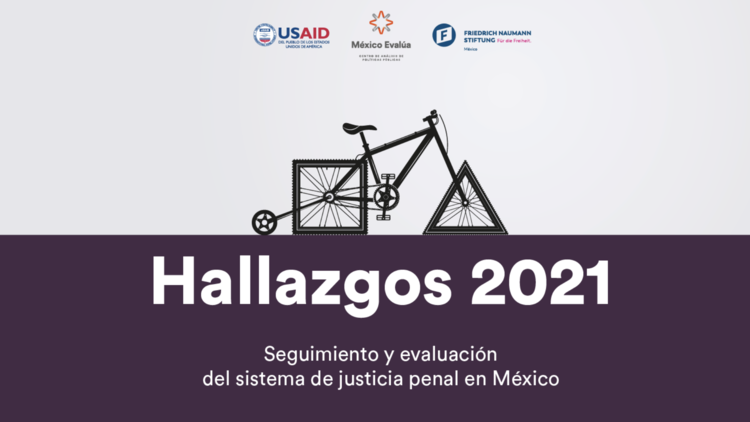Rule of law
The Ups And Downs of the Mexican Criminal Justice System

The ninth consecutive Hallazgos report from the Mexican NGO, Mexico Evalua, brought forth both advancements and setbacks in the operation of the Mexican criminal justice system and while it shows various signs of improvement, there are concerning aspects that continue to define the system.
According to their latest report, Mexico has seen a reduction of the national impunity rate, from 94.8% in 2020 to 91.8%. However, with this rate still surpassing the 90%, can we consider ourselves in a position to celebrate small victories? It is true that impunity exists even in the most effective justice systems, but the levels and conditions that allow it are what differentiate between a strong rule of law and a fragile one.
An aspect that has seen a significant decrease is illegal detentions, which went from 25.8 % in 2020 to 15.2 % in 2021. However, the report signals an increase in pre-trial detention. While pre-trial detention should be of exceptional use and the common assumption is that this measure is used only on the most serious crimes, the reality is that 6 out of every 10 people under pre-trial detention are investigated for small charges such as robbery and small-scale drug dealing.
In the case of mandatory or automatic pre-trial detention, 3 out of 10 people are investigated for robbery and 1 out of 10 for domestic violence, small-scale drug dealing and homicide. Pre-trial detention has dire consequences not only for the suspects’ life, but also for their families, it can represent an overlooked form of abuse of the criminal justice system, since only 20% of the people on pre-trial detention were convicted in 2021. This happens primarily due to the lack of prioritisation and proper allocation of resources, crimes which could be solved faster through alternative justice mechanisms end up being solved through more complex and lengthy processes. In the meantime, crimes such as homicide, femicide and kidnapping, which require a greater investigative effort, present the lowest resolution rates. The report emphasises, however, a better use of alternative justice mechanisms than in previous years, which is a crucial first step for decompressing an overburdened system.
The level of efficiency of the system is also characterised by the number of personnel assigned to a criminal investigation as this has a direct impact on the quality of the criminal justice system's response. This year, 2021, shows an increase in personnel such as expert personnel, prosecuting officers or public prosecutors, but it is also characterised by a weakening of agencies and services that protect victims, with one single counsellor in the State Executive Commissions for Attention to Victims representing over 900 victims in some states.
An analysis of the current Mexican criminal justice system cannot be done without pointing out the continuous militarization of public security, which has direct consequences for the system as it impacts the processes of detention, custody and the criminal investigation as a whole. The National Guard received numerous complaints of human rights violations, which puts a strain on the criminal justice system. Infringing basic human rights in the name of justice is something that cannot be permitted in any state that claims it has a functioning rule of law. Moreover, the criminal justice system should protect human values regardless of the circumstances and should not allow, let alone facilitate the undermining of these rights to achieve certain results.
As a society, we should bear in mind that the criminal justice system is a response to crime, not a solution. The system should be perceived as a last resort and the majority of problems that can result in crimes should be solved before the system has to act. When a presumed infraction goes into the criminal justice system, it should be prioritised and all institutions involved should coordinate in order to carry on a process governed by human rights compliance and reach a proportionate and just resolution in the shortest time possible.
There might be a long way to go until this is something that characterises the Mexican criminal justice system, but initiatives such as the Hallazgos report are of utmost importance in the process. The report offers a clear view of where the system stands and proposes relevant and attainable solutions considering the circumstances and components of the system.
The full report in Spanish can be found here: https://www.mexicoevalua.org/hallazgos-2021-evaluacion-del-sistema-de-justicia-penal-en-mexico/
